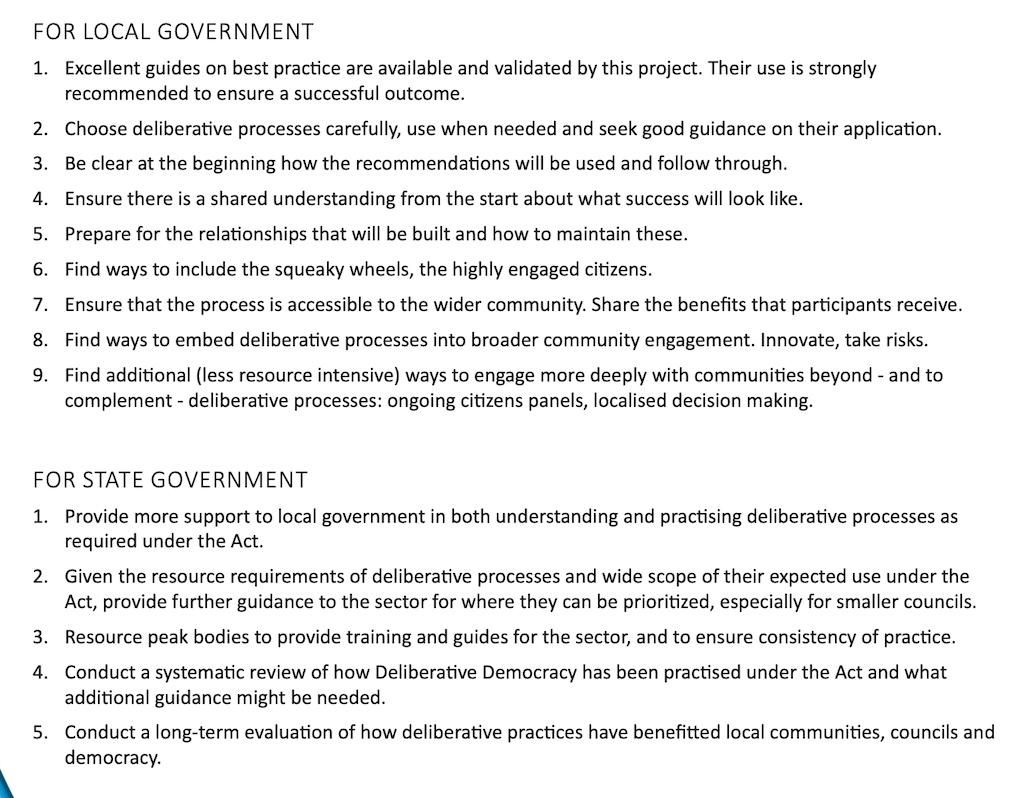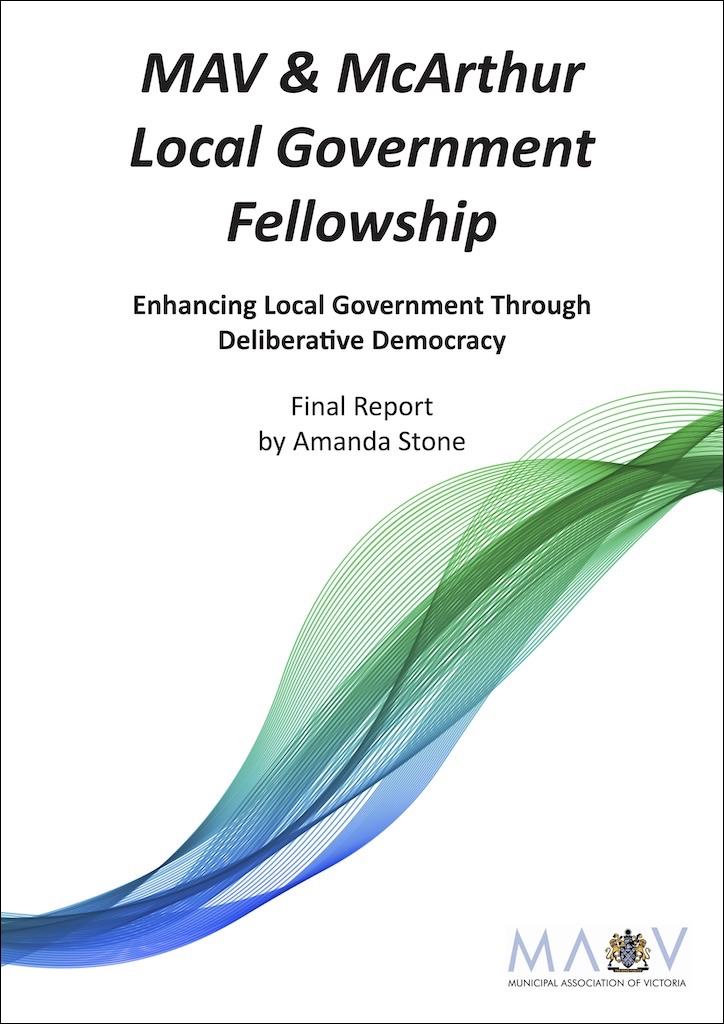Yarra councillor Amanda Stone has delivered her report on enhancing local government through deliberative democracy, resulting from her Local Government Fellowship from the Municipal Association of Victoria:
Local Government Fellowship
The Local Government Fellowship is open to all Victorian councillors and supports the winner to undertake international research and study of a policy area of significance to local government. Councillor Stone was awarded the fellowship for 2019.
What is deliberative democracy?
Deliberative processes deliver a judgement by citizens based on information and deep consideration. This contrasts with the opinion and “gut reaction” which a typical consultation delivers.
Enhancing Local Government Through Deliberative Democracy
Deliberative processes…are characterised by randomly selected citizens, making up a microcosm of a community, spending significant time learning and collaborating through facilitated deliberation to develop informed collective recommendations for public authorities.
Enhancing Local Government Through Deliberative Democracy
The key features of a deliberative process are:
- the representativeness of participants,
- the time and support provided for facilitation, and
- the commitment to act on the recommendations
Types of deliberative processes include:
- Citizens Assembly – a deliberative process using a large number of citizens (average 90), meeting over an extended period of time, to deliver detailed, collective recommendations. Used more for electoral reforms, constitutional questions.
- Citizens Jury – a deliberative process involving a smaller number of citizens (30-40), meeting over a number of weeks to deliver collective recommendations. Used for a broad range of topics including infrastructure, health, urban planning, environment.
- Ongoing Citizens Panel – a standing deliberative panel, comprising 30-40 citizens, rotating over a 1-2 year period. Ongoing processes mandated to provide input on various questions when public authority is in need.
- Sortition – a process of random selection; each member of a population has an equal chance of being selected.
Example from Yarra
The City of Yarra used deliberative process to develop the Community Vision 2036, in accordance with the Local Government Act 2020.

Sixty people were originally selected to join the panel. Forty were randomly selected by company Sortition Foundation through an expression of interest process independent of council, and 20 more were selected through a process run by council to reach people at risk of underrepresentation.
https://reports.yarracity.vic.gov.au/community-vision
Best practice
From the report:
Best practice suggests that deliberative processes, especially citizens’ juries, citizens assemblies and citizens panel are most effective when used to tackle difficult issues, where there are multiple stakeholders, many different perspectives, no clear outcome and where trade-offs will be needed. The many citizens assemblies on climate change have their origins in these criteria.
Enhancing Local Government Through Deliberative Democracy
By engaging a representative sample of the population in an in-depth, prolonged and facilitated deliberation on an issue of importance to the community, local government can benefit from informed, considered recommendations on some of the most difficult issues to resolve and be confident that this advice represents the range of perspectives that exist in the community.
Enhancing Local Government Through Deliberative Democracy
Benefits
The more immediate benefits of deliberative processes are to the participants who report a positive, powerful experience: of learning about the work their council undertakes, of feeling more connected to their council and fellow citizens, and of having had a voice, made a difference. For many it is the impetus to remain more engaged in local government decisions.
Enhancing Local Government Through Deliberative Democracy
Recommendations
The report made multiple recommendations:

Our view
Streets Alive Yarra supports the recommendations. We’d like to see council use deliberative processes for difficult issues that require a step change in our culture before the root cause of a significant problem can be mitigated, such as how much of our public land should be allocated for the storage of private motor vehicles, and how that public land should be priced. It’s the elephant in the room which is holding us back from building a more beautiful, liveable and accessible city. More generally, there is probably at least one issue each year at council which deserves a deliberative process, such as how to price access to public sports facilities (the proposed reform was paused), or how to allocate charges for waste collection (the proposed reform proceeded). Those issues were affected by “gut reactions” whereas the deliberative process would allow for more informed decision making.
Published 13th August 2023

